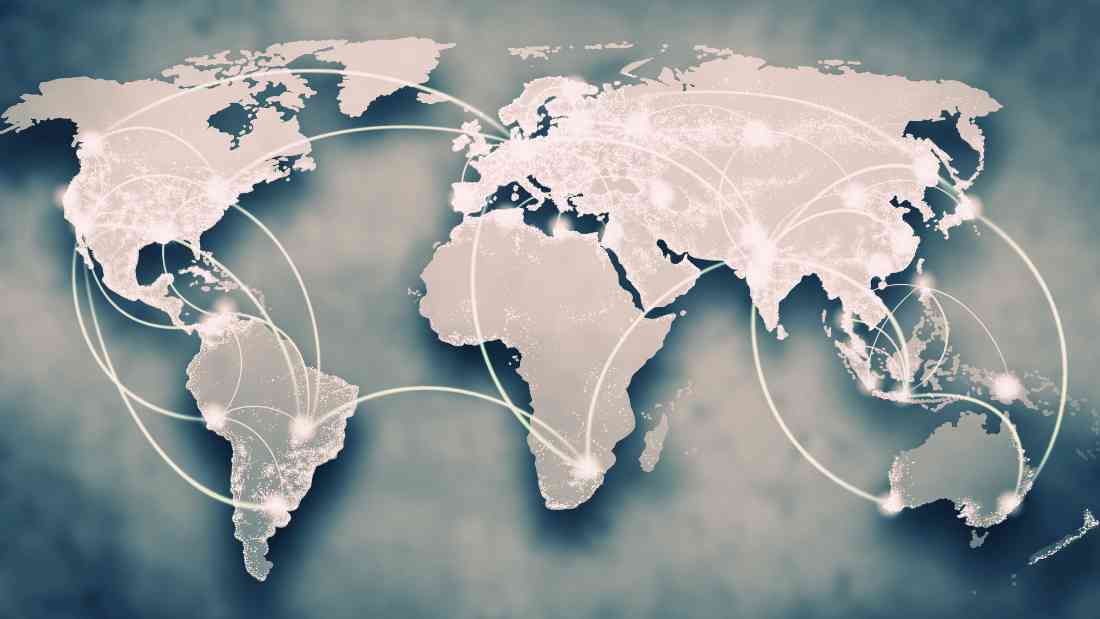Business anthropology utilizes anthropological methodologies to discover innovative answers to problems encountered in the business world.
This specialized branch of anthropology takes a comprehensive view of the intricate dynamics between a business and its customers, examining the entire ecosystem within which the organization functions.

Understanding Business Anthropology
Business anthropology is a unique discipline that brings the theoretical frameworks and methodologies of anthropology to the forefront of business studies. This field serves as a bridge, linking the analytical tools of anthropology to the real-world challenges faced by organizations, consumers, and markets.
Business anthropologists delve into the intricate dynamics of organizational structures, studying the behaviors of employees, and analyzing patterns in consumer trends.
Their research provides a comprehensive understanding of the complex interplay between cultural, social, and personal factors that shape business operations and consumer behavior.
In an era defined by globalization, the role of business anthropology has become increasingly significant.
It equips organizations with the ability to comprehend subtle cultural nuances, gain a deeper understanding of local markets, and customize their products, services, and communication strategies to align with these insights.
This essential process of reshaping a business to resonate with the social and cultural fabric of a local market is known as localization.

The Role of Business Anthropology in Localization
Localization goes beyond mere translation of language. It involves a comprehensive understanding of a region’s culture, customs, preferences, legal regulations, and market dynamics.
Business anthropologists play a vital role here by providing insights into these aspects.
Cultural Comprehension in Business
Each culture is a vibrant tapestry of distinct traits, norms, and values.
The expertise of business anthropologists in the field of ethnographic research is instrumental in decoding these cultural intricacies. By immersing themselves in the local environment, they can dissect and interpret the underlying social constructs that define a community’s behavior.
Business anthropologists act as cultural translators, demystifying what is deemed acceptable or offensive within a particular society. They help businesses understand the emotional and symbolic connotations of their actions, products, and services, identifying what resonates with the local populace and what may potentially be dismissed or cause offense.
Furthermore, they provide invaluable insights into consumer preferences and behavior within specific cultural contexts. By understanding the motivations, aspirations, and values of local consumers, businesses can develop more relevant and engaging marketing strategies.
This cultural comprehension allows organizations to design products and services that truly align with the needs and expectations of their target audience.

Understanding Regional Consumer Behavior
Consumer behavior is a complex phenomenon influenced by a myriad of cultural, social, and economic factors.
These influences can result in significant variations in consumer behavior from one geographical region to another.
Business anthropologists, with their expertise in cultural understanding and ethnographic research, can unravel these regional peculiarities.
By conducting in-depth analyses of regional cultures and societies, business anthropologists can identify key lifestyle patterns, purchasing habits, and consumer preferences unique to each area.
Moreover, businesses can use analytical methods reflecting both real-time and non-real-time consumption behavior to gain a comprehensive understanding of regional consumer trends. This allows businesses to design products and services that truly resonate with local consumers, thus enhancing customer experience and satisfaction.
In the context of e-commerce, a cross-platform consumer behavior analysis can reveal fascinating insights into users’ cultural differences across different regions. Such analysis can guide businesses in tailoring their online interface and marketing strategies to accommodate regional cultural nuances.
Furthermore, global events such as the COVID-19 pandemic have underscored the importance of understanding regional consumer sentiment. As consumers worldwide adjust to new norms, there is considerable variation in consumer sentiment and behaviors across countries.
In essence, a thorough understanding of regional consumer behavior provides businesses with the tools they need to effectively reach and engage with their target audience.
By leveraging the insights derived from business anthropology, companies can fine-tune their marketing efforts, product development, and service delivery to align with local tastes and preferences.

Crafting Culturally-Sensitive Communication Strategies
Effective communication forms the backbone of successful localization. By understanding the cultural, social, and linguistic nuances of different regions, business anthropologists can guide organizations in crafting messages that are both culturally appropriate and impactful for local audiences.
Business anthropologists can inform everything from the development of advertising campaigns to shaping customer service interactions.
They can assist in creating marketing content that speaks directly to local consumers, capitalizing on cultural references, local idioms, and regional humor to engage audiences.
A good example is the global brand McDonald’s, which tailors its menu and advertising to cater to local tastes and customs in different countries.
In terms of customer service, business anthropologists can advise on the most effective ways to communicate with customers in different regions.
This could involve understanding local communication styles, preferred modes of communication, and expectations for customer service.
For example, in some cultures, a direct communication style is appreciated, while in others, a more indirect, polite approach may be preferred.
Moreover, business anthropologists can also help organizations understand how to use digital platforms effectively in different cultural contexts.
Social media usage varies greatly across different cultures, influencing how companies should interact with customers and share content online.
In essence, the insights provided by business anthropologists can significantly enhance a company’s communication strategies, ensuring they resonate deeply with local audiences.
By employing culturally-sensitive communication strategies, businesses can foster stronger connections with their customers, build a positive brand image, and ultimately drive business success in diverse markets.

Conclusion
In the era of globalization, successful localization practices are not just about translating a product or a service into another language, but about understanding and respecting the cultural nuances of the target market.
Business anthropology, with its focus on understanding human behavior in a cultural context, provides invaluable insights for businesses looking to expand into new territories. It is indeed the secret ingredient for successful localization practices.
By leveraging the power of business anthropology, businesses can navigate cultural complexities, connect with local consumers more effectively, and ultimately, thrive in new markets.

Frequently Asked Questions About Business Anthropology
Business Anthropology is the application of anthropological theories and methods to solve real-world business problems. It involves studying the cultural, social, and behavioral aspects of people within a business or market context.
Business Anthropologists study the human elements of business, including consumer behavior, organizational culture, and global business strategies. They conduct ethnographic research, interviews, surveys, and other qualitative and quantitative methods to gather data. This data is then used to provide insights and recommendations for business strategy, product development, marketing, and other areas.
Business Anthropology helps businesses understand the cultural, social, economic, and psychological factors that influence consumer behavior. Through ethnographic research, business anthropologists can identify patterns in consumer behavior, preferences, and motivations, allowing businesses to tailor their offerings accordingly.
Business Anthropologists can guide businesses in crafting culturally appropriate and impactful messages. They offer insights into local customs, values, and communication styles, which can be crucial in developing advertising campaigns, customer service interactions, and overall communication strategies.
Yes, Business Anthropology can play a significant role in product development. By understanding the needs, wants, and behaviors of consumers, business anthropologists can provide valuable insights that inform the design and development of products that meet consumer expectations and preferences.
Through their deep understanding of cultural nuances, business anthropologists can help businesses adapt their products, services, and communications to fit local markets. They provide insights on local tastes, preferences, and consumer behavior, enabling businesses to successfully localize their offerings.

